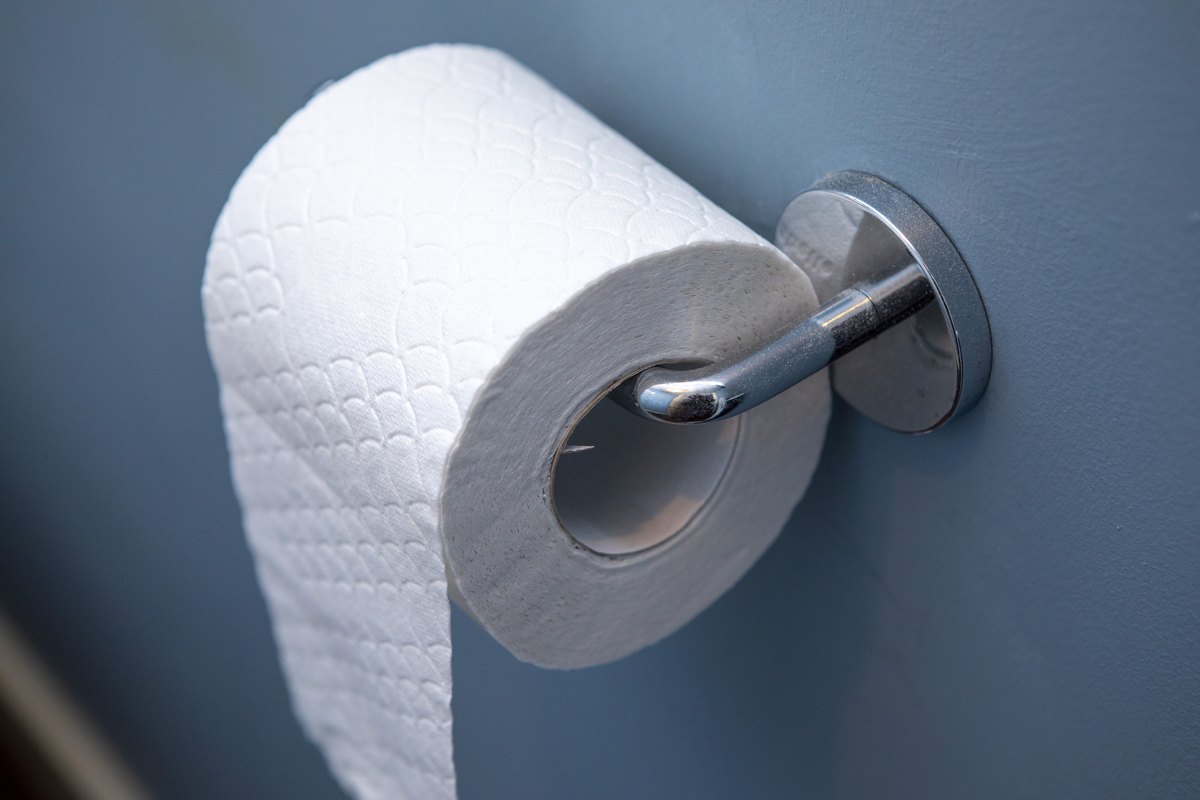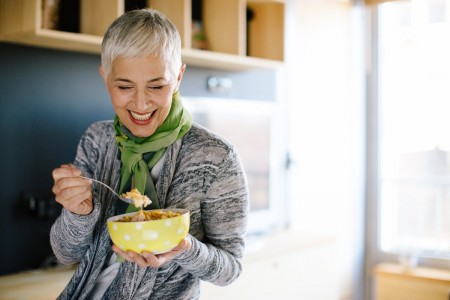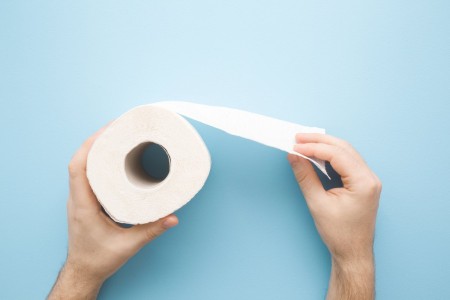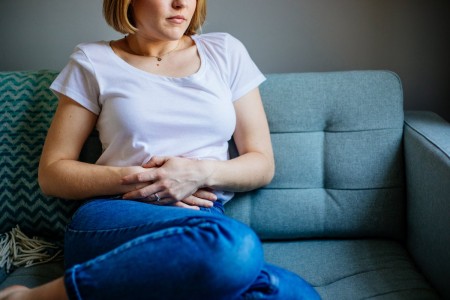
Advertisements
Getting older brings a bunch of bodily changes. And constipation is indeed one of those age-related health issues. Yep: As you accumulate candles on your birthday cake, you're more bound to get backed up.
Video of the Day
We spoke to Reezwana Chowdhury, MD, a gastroenterologist and assistant professor of medicine at Johns Hopkins University, to better understand the causes of constipation in older adults, plus what you can do to help keep your bowels unblocked.
1. Less-Than-Ideal Dietary Habits
What you put on your plate can either promote or prevent regular poops. For many of us, the problem is inadequate fiber, Dr. Chowdhury says. The benefits of fiber include better digestion and bowel function, so when you're not getting enough, you might find yourself constipated.
In fact, the vast majority of American adults (95 percent) fall short of the recommended daily amount of fiber, according to a July 2016 article in the American Journal of Lifestyle Medicine.
What's more, some older adults experience a loss of taste and smell as they age, according to the Mayo Clinic. Not only can this change decrease your appetite (making it tougher to get nutrients like fiber), but it can also lead to less-nutritious dietary choices, as highly processed foods (which contain little or no fiber) tend to be more palatable.
Fix it: One of the best natural remedies for constipation is to pile your plate with fiber-rich foods like fruits, vegetables, whole grains and legumes. Per the 2020-2025 Dietary Guidelines for Americans, this is how much fiber adults ages 51 and older should aim for per day:
- People assigned female at birth: 22 g
- People assigned male at birth: 28 g
Tip
If you’re noticing a shift in your sense of smell or taste that’s tampering with your appetite, speak with your doctor. While some loss of taste and smell is normal with aging, other factors — including underlying conditions and certain medications — can be contributing to your impaired senses, per the Mayo Clinic.
2. Not Getting Enough Water
Water intake is also extremely important for a healthy gut and plentiful poops, Dr. Chowdhury says. That's because water softens your stool, which makes for easy-breezy bowel movements.
But when you're not sipping sufficient amounts of H2O, constipation can occur.
Here's why: Your colon draws water and nutrients from partially digested food to nourish the body, per the National Cancer Institute. So when you don't have a lot of H2O, your colon absorbs whatever water is available to meet your body's needs, leaving very little left over for your stool, which becomes dry, hard and difficult to pass.
And this lack of fluids is a problem for many older adults. Case in point: Dehydration is a common cause of hospitalization in older people, according to the Cleveland Clinic.
In some older folks, this dehydration may be due in part to a medically necessary fluid restriction that's required to manage various health conditions (for example, heart failure), Dr. Chowdhury says.
Fix it: As long as your doctor hasn't instructed you to do otherwise, stay hydrated by drinking about eight glasses of water (a total of 64 ounces) per day, Dr. Chowdhury says. If you're not partial to plain water, toss in fresh fruits or herbs for a little flavor.
Advertisements
How Much Water Should You Drink?
For a more customized estimate of how much water you should drink per day, try this equation:
Body weight (in pounds) ÷ 2 = minimum ounces of water you should drink a day
3. Decrease in Gut Motility
As we age, we lose muscle mass, and this can affect gut motility and contribute to constipation in older adults. That's because the intestinal walls are lined with layers of muscle, which contract to move food through your digestive system. So when these muscles aren't working as well as they used to, you might find yourself backed up.
Indeed, when you get older, the muscular activity in your intestinal tract tends to decline, which lengthens the time it takes for poop to pass through the intestines, according to the University of Michigan Health.
There's also an age-related decrease in the number of gut cells that involve propulsion, Dr. Chowdhury says. This means that your gut produces fewer contractions to squeeze stool along the digestive tract, which slows down your gut transit time and can cause constipation.
Fix it: If your poop problem is due to a decrease in gut motility, your doctor might prescribe you a medication to help promote colon muscle movements, Dr. Chowdhury says.
4. Certain Medications
With age, there's a greater probability of developing long-term health conditions that require medicines. Unfortunately, certain medications can clog up your digestive system.
For example, many older adults take diuretics to manage diseases like heart failure, but these drugs can be dehydrating, Dr. Chowdhury says. As we already know, not getting enough fluids can dry out your fecal matter and prevent you from pooping regularly.
Dr. Chowdhury says other medications can also sabotage your stool schedule and cause constipation, including:
- Opioids (prescription pain meds)
- Anticholinergics (used to treat a range of conditions, including asthma, COPD, overactive bladder and symptoms of Parkinson's disease)
- Antidepressants
- Allergy medicines
- Drugs used to treat blood pressure
- Drugs used to treat dementia
Fix it: Even if you suspect your meds are meddling with your bowel movements, don't just stop taking them, as this could be dangerous, Dr. Chowdhury says. Instead, talk to your doctor, who may be able to adjust your dosage or prescribe a different medicine.
Additionally, make sure you're drinking enough water, taking in ample fiber and getting daily exercise, she says. And if you're still struggling with constipation, you might try an over-the-counter laxative like MiraLAX (Amazon, $24.48) to find relief.
5. Moving Less
When we're older, we tend to move around less and sit more, Dr. Chowdhury says. But this sedentary lifestyle can slow down your gastrointestinal tract.
"I'm a full believer that as you move, your gut moves," Dr. Chowdhury says. In other words, activity stimulates the gut and benefits your bowel movements, which is why being less physically active may contribute to constipation.
Fix it: Try to fit in 30 minutes of exercise or physical activity per day, Dr. Chowdhury says. It doesn't need to be super strenuous, either — a simple stroll can get the juices flowing.






